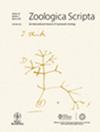论进化的终结——人类与物种灭绝
IF 2
2区 生物学
Q2 EVOLUTIONARY BIOLOGY
引用次数: 3
摘要
在过去的几十年里,世界人口呈指数增长,人类一直在向自然发动一场真正的战争,而我们自己也是其中的一部分。我们正在掠夺独特的生物宝藏——物种多样性。没有物种多样性,我们赖以生存的食物、水等生态系统就无法运转。目前,我们已经处于人口和物种大量减少的过程中,其灭绝率明显高于长期平均水平。主要是由于栖息地的丧失和退化,通过合法和非法狩猎和捕鱼以及杀虫剂和污染进行的直接开发,在几十年内,总共800万个物种中的100万个可能会灭绝。除了气候变化之外,生物多样性的急剧衰退,以及随之而来的生态系统服务的丧失,这里被称为“进化的终结”,是对人类的另一个威胁,但绝不是较小的威胁。我们仍然可以采取对策,但我们必须转变经济和生活方式。最成功的战略是,到2030年保护多达30%的地球表面,理想的基础是实施一致的全球生态系统框架,正如2022年12月联合国缔约方大会(COP15)蒙特利尔会议为保护生物多样性而商定的那样。本文章由计算机程序翻译,如有差异,请以英文原文为准。
On the end of evolution – Humankind and the annihilation of species
For too long and with ever‐increasing ferocity during the past decades of an exponentially growing human world population, humankind has been waging a genuine war against nature, of which we ourselves are nevertheless also a part. We are plundering the unique biological treasure, the diversity of species, without which the ecosystems we rely on for our food, our water and so much more would not function. At present, we are already in the midst of a massive decline of populations and species, with a significantly higher extinction rate than the long‐term average. Driven essentially by habitat loss and degradation, direct exploitation through legal and illegal hunting and fishing as well as pesticides and pollution, within decades, 1 million species out of a total of 8 million could go extinct. Alongside climate change, this dramatic decay of biodiversity, that involves also the subsequent loss of ecosystem services, here termed ‘the end of evolution’, is another and by no means lesser threat to humanity. We can still take countermeasures, but we must transform our economy and change our way of living. As most successful strategy the protection of up to 30% of Earth's surface by 2030 was suggested, ideally based on the implementation of a consistent framework of global ecosystems, as it was agreed on by the December 2022 United Nations Conference of Parties (COP15) Montreal meeting for the Conservation on Biological Diversity.
求助全文
通过发布文献求助,成功后即可免费获取论文全文。
去求助
来源期刊

Zoologica Scripta
生物-动物学
CiteScore
5.60
自引率
0.00%
发文量
52
审稿时长
>12 weeks
期刊介绍:
Zoologica Scripta publishes papers in animal systematics and phylogeny, i.e. studies of evolutionary relationships among taxa, and the origin and evolution of biological diversity. Papers can also deal with ecological interactions and geographic distributions (phylogeography) if the results are placed in a wider phylogenetic/systematic/evolutionary context. Zoologica Scripta encourages papers on the development of methods for all aspects of phylogenetic inference and biological nomenclature/classification.
Articles published in Zoologica Scripta must be original and present either theoretical or empirical studies of interest to a broad audience in systematics and phylogeny. Purely taxonomic papers, like species descriptions without being placed in a wider systematic/phylogenetic context, will not be considered.
 求助内容:
求助内容: 应助结果提醒方式:
应助结果提醒方式:


